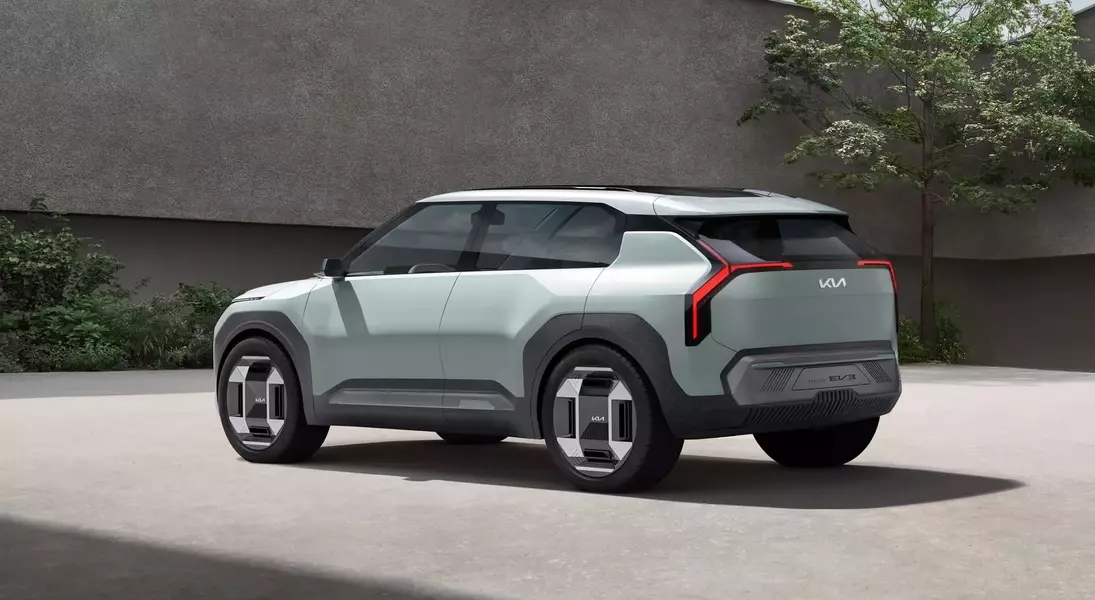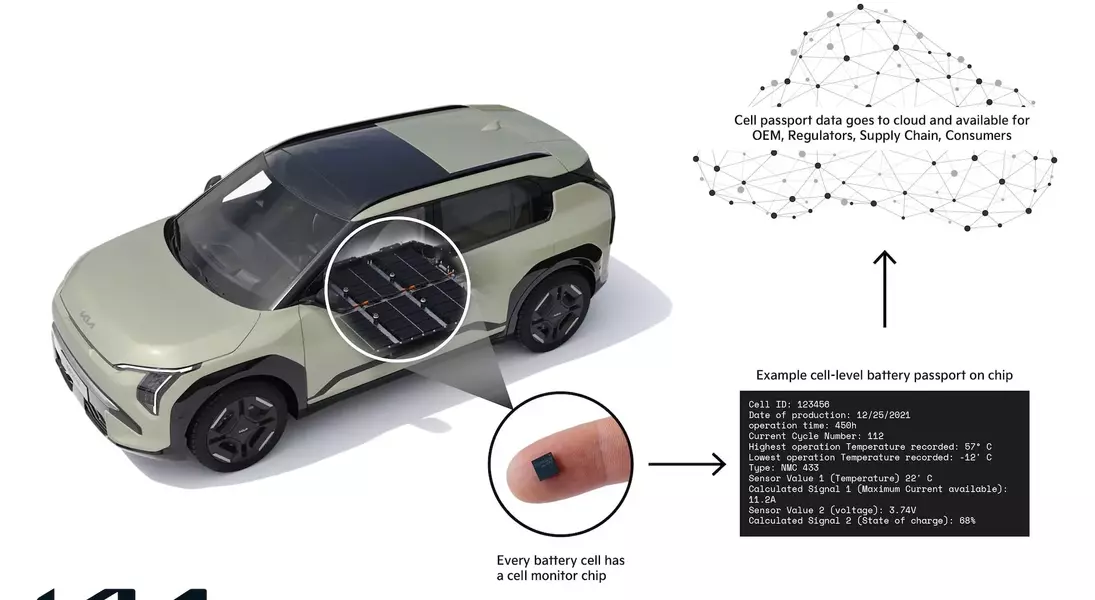




Kia is introducing a groundbreaking battery monitoring system that scrutinizes individual cells within an electric vehicle's power pack. This advanced approach promises to revolutionize EV maintenance by pinpointing issues with remarkable accuracy, thereby allowing for more focused and economical repairs. Such a system addresses a critical concern for both consumers and regulators: the longevity and cost-effectiveness of EV batteries. By providing detailed insights into battery health, it aims to prevent unnecessary replacements of entire modules or packs, ultimately saving EV owners substantial amounts of money over the vehicle's lifespan. This initiative also positions Kia at the forefront of compliance with impending European Union mandates for 'battery passports,' which will require comprehensive health records for all EV batteries by February 2027, fostering greater transparency and trust in the burgeoning EV market.
Moreover, this technology extends beyond immediate cost savings, playing a crucial role in enhancing the sustainability of electric vehicles. By accurately assessing the true condition of batteries, it mitigates waste associated with prematurely retiring still-functional packs due to a lack of precise data. This transparency will also benefit the used EV market, allowing prospective buyers to make informed decisions based on a battery's verifiable health history. As electric vehicles become increasingly prevalent, innovations like Kia's cell-level monitoring system are vital for improving ownership experience, reducing environmental impact, and driving the long-term adoption of electric mobility worldwide, ensuring that EV batteries remain a reliable and cost-efficient component throughout their operational life.
Revolutionizing EV Battery Maintenance with Cell-Level Monitoring
Kia is implementing a novel battery monitoring system designed to inspect individual cells within an electric vehicle's battery pack, a significant advancement over traditional pack-level monitoring. This innovative technology is set to dramatically reduce repair costs for EV owners by enabling highly specific interventions. Instead of necessitating the replacement of large, expensive battery modules or entire packs, the system can identify and isolate issues at the cellular level. This precision means that only the affected cells require attention, leading to more efficient and less costly repairs. This pioneering approach is particularly relevant as the European Union prepares to mandate 'battery passports' by February 2027, requiring detailed health records for all hybrid and electric vehicle batteries sold within member countries. Kia's early adoption of such a system demonstrates a proactive stance in meeting future regulatory demands and enhancing customer value.
The newly developed system, currently undergoing trials on a Kia EV3, leverages chips embedded within each battery cell to collect and transmit real-time data. This continuous flow of information, managed through infrastructure overseen by the Netherlands' Delft University of Technology, paints a comprehensive picture of the battery's health status. Kia's ambition is to make this data accessible to vehicle owners, mechanics, and regulators, ensuring full transparency throughout the battery's lifecycle. Such end-to-end traceability will not only facilitate accurate diagnostics and targeted repairs but also provide automatic updates post-repair, maintaining an up-to-date health record. This capability is expected to instill greater confidence in the longevity and reliability of EV batteries, particularly for prospective buyers in the used EV market, as it eliminates uncertainties about a battery's true condition. Ultimately, by preventing the premature retirement of still-usable batteries, this technology significantly contributes to the environmental sustainability and overall efficiency of electric vehicles.
Ensuring Battery Longevity and Regulatory Compliance in the EV Sector
The new battery monitoring technology introduced by Kia is poised to significantly enhance the longevity and reliability of electric vehicle batteries, directly addressing a primary concern for both consumers and regulatory bodies. By enabling precise, cell-level diagnostics, the system ensures that batteries can be maintained and repaired more effectively, thereby extending their useful life. This innovation aligns perfectly with the European Union's upcoming 'battery passport' mandate, which by February 2027 will require all EVs and hybrids to carry comprehensive health records for their batteries. This regulatory push underscores the growing importance of battery durability and transparency, and Kia's system places it at the forefront of meeting these stringent requirements. The ability to monitor individual cells not only facilitates cost-effective repairs but also provides a clearer understanding of a battery's overall health, crucial for informed decisions regarding its continued use or eventual recycling.
Beyond European regulations, the advancements in battery monitoring also resonate with evolving standards in other regions, such as California. Starting with the 2030 model year, California will require new electric vehicles to maintain at least 80% of their electric range for 10 years or 150,000 miles. Furthermore, from the 2031 model year, manufacturers must offer warranties guaranteeing 75% battery capacity for eight years or 100,000 miles. These regulations highlight a broader industry trend towards greater accountability and improved performance from EV batteries. Studies, such as one by Geotab involving 10,000 EVs, indicate that electric vehicle batteries are remarkably robust, degrading on average by only 1.8% per year. At this rate, many battery packs could easily surpass a 20-year lifespan. Kia's new monitoring system will further solidify this reliability, ensuring that these essential components not only meet but exceed durability expectations, ultimately boosting consumer confidence and promoting the widespread adoption of electric vehicles globally.
